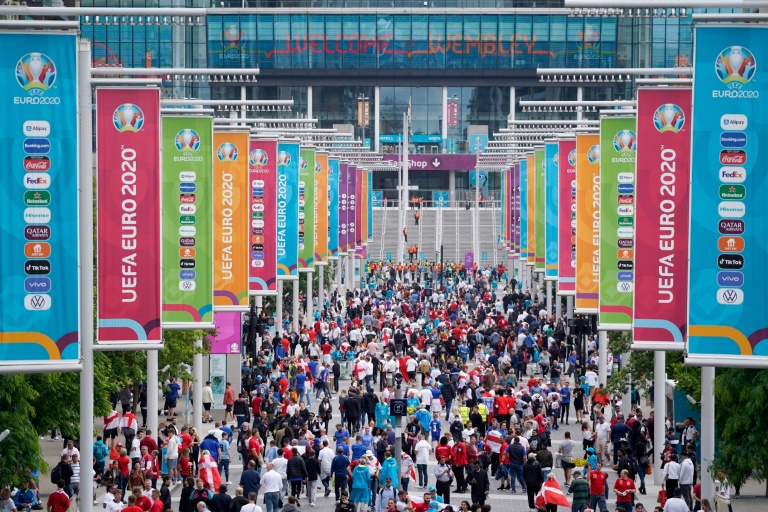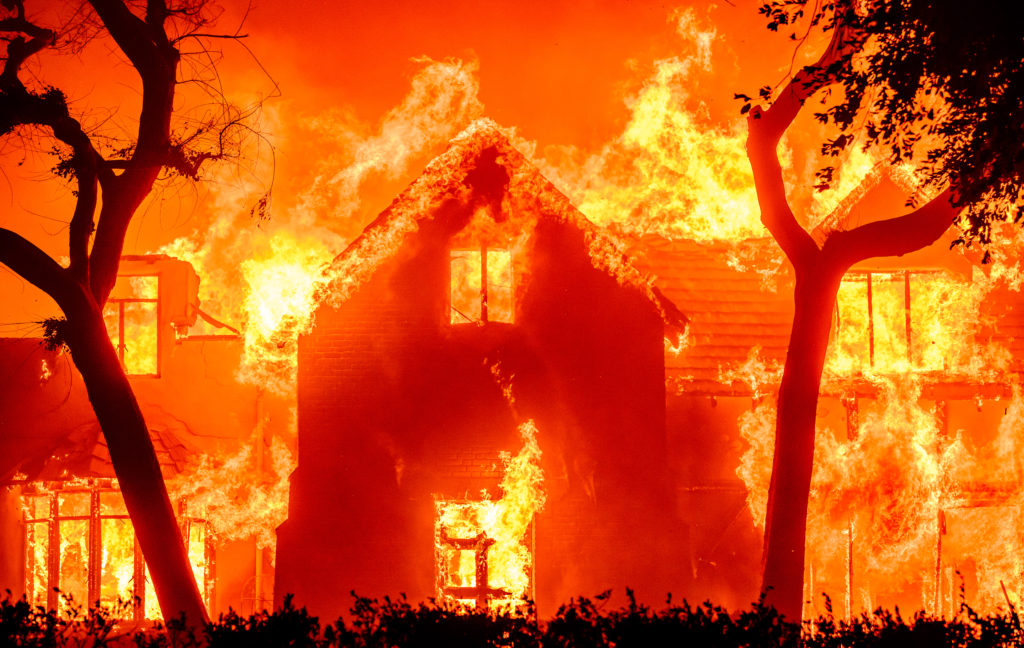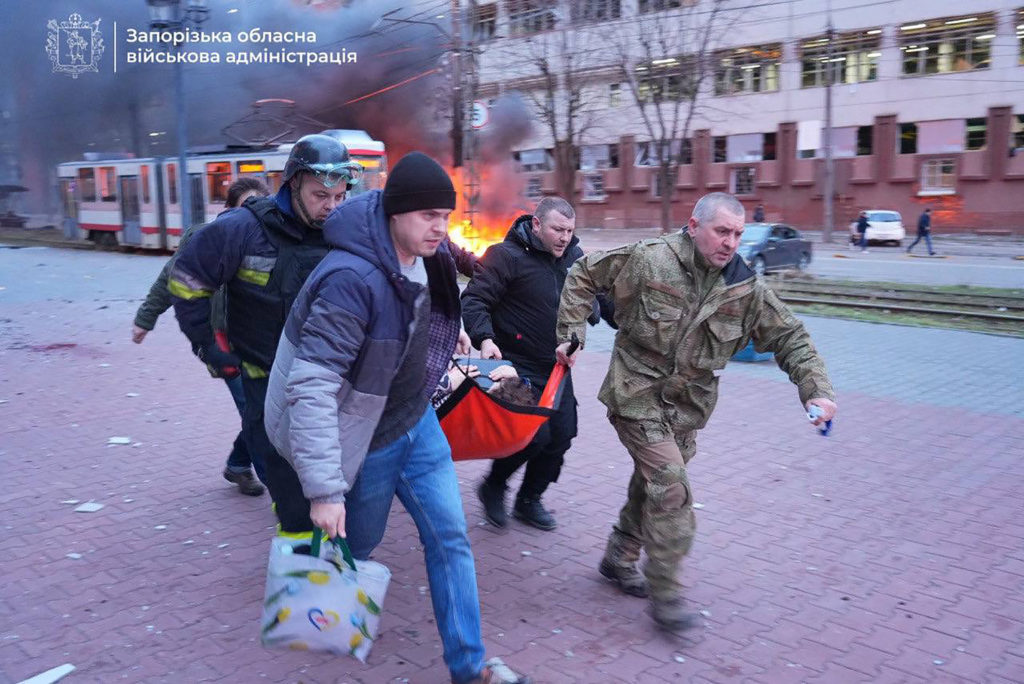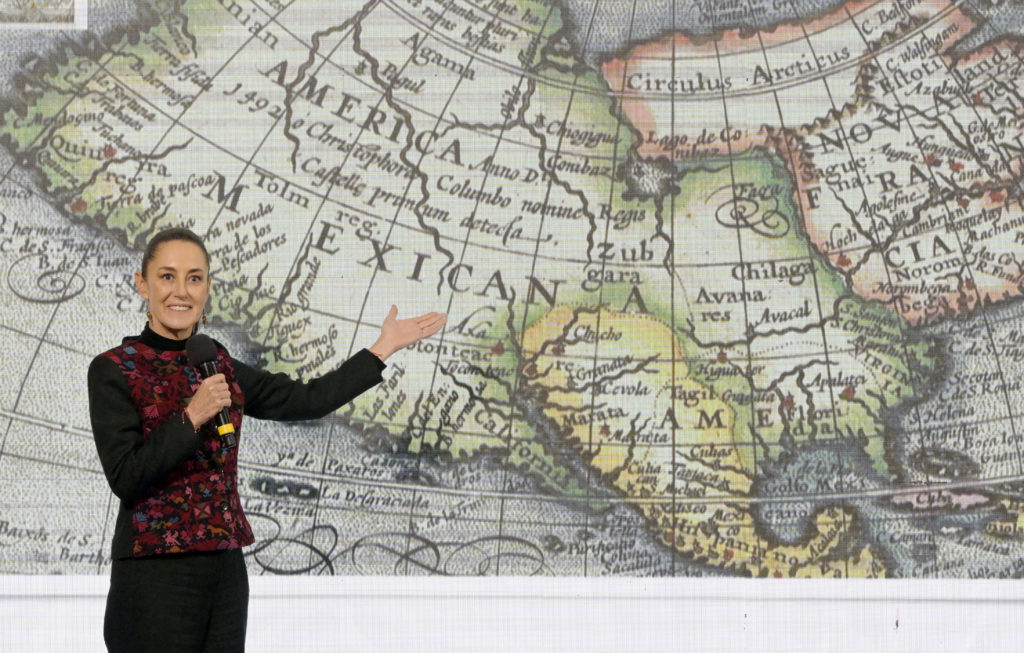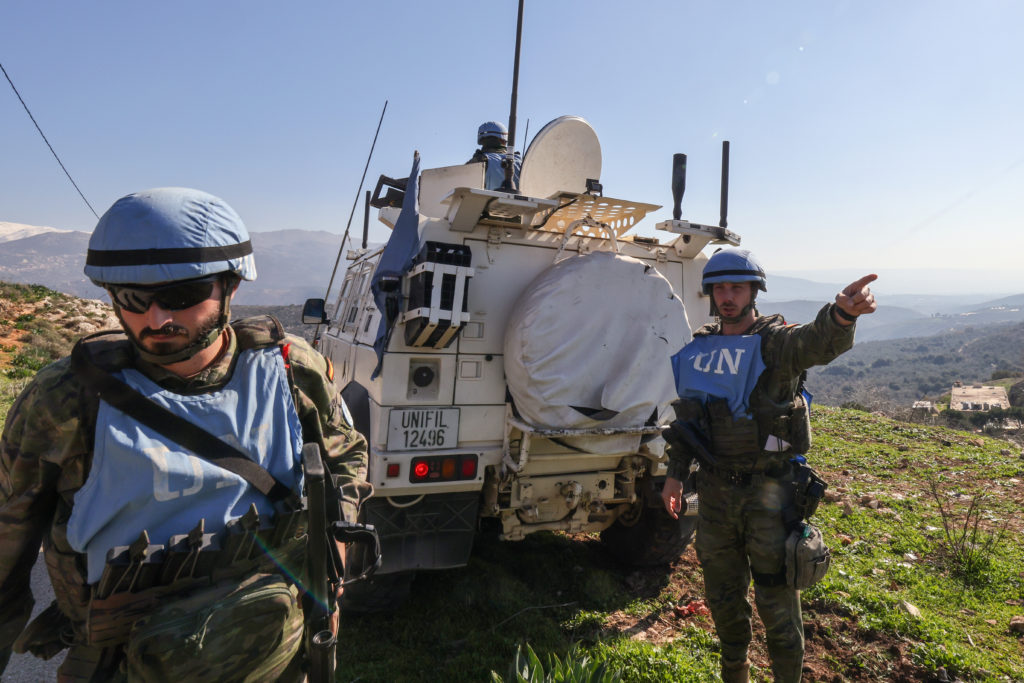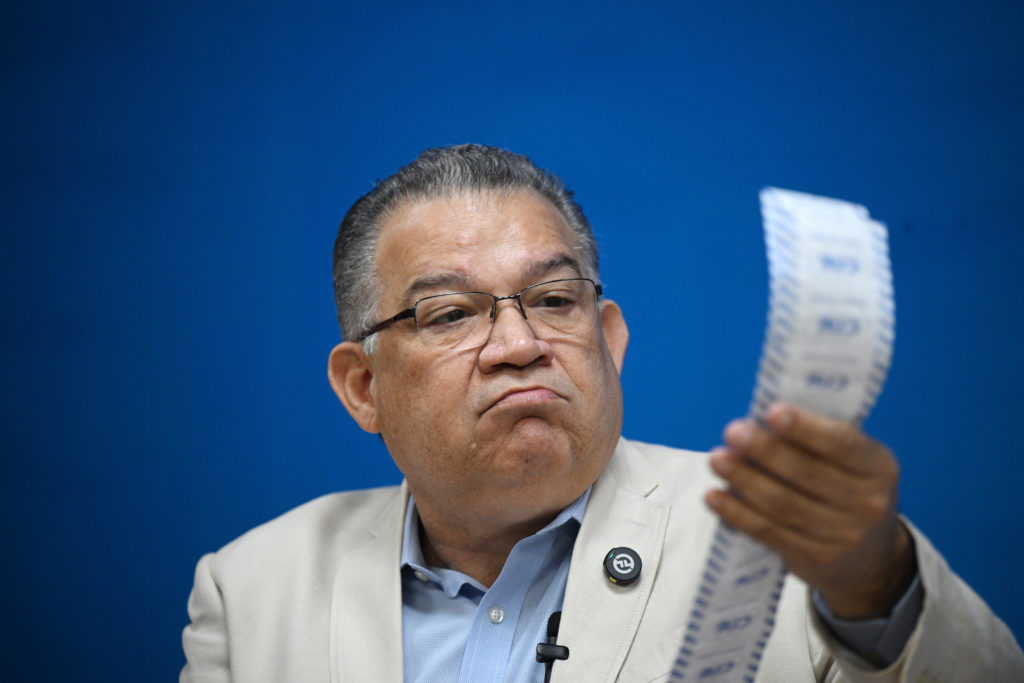British authorities warned of the dangers of large gatherings for Sunday’s Euro 2020 football final, fearful of the highly transmissible Delta coronavirus variant that is firing outbreaks across the world.
Many nations have been forced to reimpose curbs as they battle outbreaks accelerated by the variant — which was first detected in India — while trying to ramp up vaccinations to allow their economies to reopen.
London will host more than 60,000 fans at Wembley Stadium for the virus-delayed Euro 2020 final, the biggest crowd at a British football match since the start of the pandemic, as England take on Italy.
Authorities are particularly concerned about the risk of large numbers at fan zones and pubs to watch England’s first appearance in a major football final in more than half a century.
But the fans do not appear to have been put off.
Hundreds converged on Wembly many hours before kick-off, singing and swigging beer.
Neil Houldsworth, 61, told AFP: “If it gets busier I will wear a mask.
“Personally, there’s no worry at all,” he added, trusting in the high numbers of double-jabbed people.
Pensioner David Durant added: “Maybe I’m a bit double-jab happy.
“It’s better here in the open air to drink our beer. You’re less likely to get it (Covid-19).
“You try, but it is very difficult with a game like this to observe social distance.”
Prime Minister Boris Johnson has signalled that remaining restrictions should be lifted in England on July 19, but infection rates are again surging — driven by the Delta variant.
His government argues that, with more than 85 percent of adults having received at least one shot, the link between infections, hospitalisations and deaths has been severed.
But many scientists are deeply uneasy with relaxing all remaining rules, including social distancing and mask-wearing.
As England’s players departed their St George’s Park base on Saturday, large numbers of cheering fans lined the road, hardly any seen wearing masks in video and photos tweeted by the team.
Health experts have expressed concerns about Euro 2020 events becoming super-spreaders throughout the tournament, especially in Britain and Russia because of the Delta variant.
Authorities in Denmark, Finland and Scotland have already reported infections among fans after they attended Euro matches.
– ‘Worse, much worse’ –
The known Covid-19 global death toll has topped four million, with the fight complicated by the emergence of variants that have accelerated outbreaks even in countries that had successfully weathered the early phases of the pandemic.
Australia, where restrictions have been reimposed in a number of cities recently, on Sunday announced its first virus-related death in the Sydney outbreak.
Authorities warned the situation was expected to worsen in Australia’s biggest city, already in a third week of lockdown and the population overwhelmingly unvaccinated.
“Tomorrow and the few days afterwards will be worse, much worse than we’ve seen today,” said Gladys Berejiklian, premier of New South Wales state, of which Sydney is the capital.
South Korea, once a model for Covid-19 response, was to tighten restrictions from Monday in and around the capital Seoul after new daily infections hit their highest level since the pandemic hit.
The Asia-Pacific region has seen a dramatic rise in cases in a number of countries, with Thailand, Indonesia, Pakistan and Vietnam imposing fresh curbs as a result.
– Economic impact –
Jakarta received more than three million doses of the Moderna vaccine from the United States on Sunday as the Southeast Asian archipelago reels from its deadliest Covid-19 wave since the pandemic began.
The delivery comes as Indonesia, the world’s fourth most populous nation, reported its daily death toll hit a near-record 1,007 deaths with over 36,000 new infections in the last 24 hours — a surge that has overwhelmed the country’s creaky health-care system.
The rapid spread of the Delta variant across Asia, Africa and Latin America is exposing crucial vaccine supply shortages for some of the world’s poorest and most vulnerable populations.
It is also a major hurdle for economies hoping to get back on track after being hammered by the pandemic.
“We are very concerned about the Delta variant and other variants that could emerge and threaten recovery,” US Treasury Secretary Janet Yellen said Sunday, after a G20 meeting in Venice, Italy.
The less privileged parts of the world are expected to suffer that economic blow the most.
That impact was in focus in the indigenous town of San Martin Jilotepeque in Guatemala, where shops were closed and streets deserted as 90,000 residents were confined from Thursday to Sunday.
For the people of the town, the restrictions did not come without a cost.
“We have payments to make, rent and children to support,” said resident Bartolome Chocoj.
“If we are not going to die of Covid, we are going to die of hunger.”
burs-qan/bp/yad

